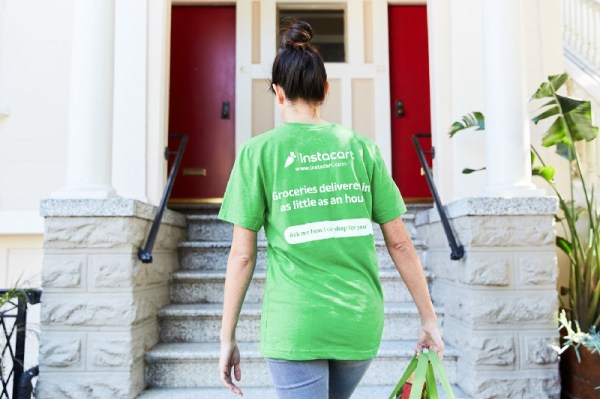Instacart has today announced the acquisition of Unata, a Toronto-based company that offers a platform for both grocers and consumers to interact digitally. The terms of the deal were not disclosed.
Unata’s product, unlike Instacart’s, is a white-label grocery platform, letting grocers anywhere create apps and websites for consumers to order products, complete with coupons, purchase tracking, push notifications, deal suggestions, and more.
Unata will continue to operate as an independent subsidiary of Instacart, with its own name and brand, keeping its HQ in Toronto.
According to the Unata website, the company is providing digital storefronts for more than 1,300 grocery locations. Unata has raised a total of $2.7 million, reports Crunchbase.
Here’s what Instacart CEO Apoorva Mehta had to say in a prepared statement:
Instacart’s mission has always been to be an independent partner to retailers and enable them to give their customers the best experiences using the best technology. This acquisition allows us to take that commitment to the next level. It represents a landmark win for retailers, who will benefit from Instacart’s scale, Unata’s highly configurable technology, and the deep grocery industry integrations this acquisition will enable.
As we head into 2018, Instacart’s main focus is growth, both with consumers and grocery chains. While the company has gone from 30 markets to 190 markets in 2017, big name retailers are buying up smaller companies to build out their own on-demand delivery platform.
Target recently announced it was buying Alabama-based Shipt in a deal worth $550 million. Kroger is reportedly in talks with Boxed to acquire the company for $500 million. And lest we forget, the greatest ecommerce platform of them all just bought its own grocery store for a whopping $13.7 billion.
With Unata, Instacart can get itself into the app development side of the grocery industry, positioning itself in the background of an existing relationship between a grocery store and its customers. Instacart has always wanted to be the digital storefront (and the legs) for grocers. This acquisition may signal a new willingness to be a backbone instead.
Unata was built to quickly and easily onboard grocers, and this acquisition should help Instacart continue to expand. At the end of the day, consumers are looking for something convenient, affordable and accurate. Instacart has years of experience in this space, and while it’s far from perfect, the company has the opportunity to make a land grab for both grocers and consumers through the Unata acquisition.
Update: An earlier version of this post mistakenly said that Instacart had expanded to 170 markets. It has been corrected to reflect the correct number of markets Instacart serves.
